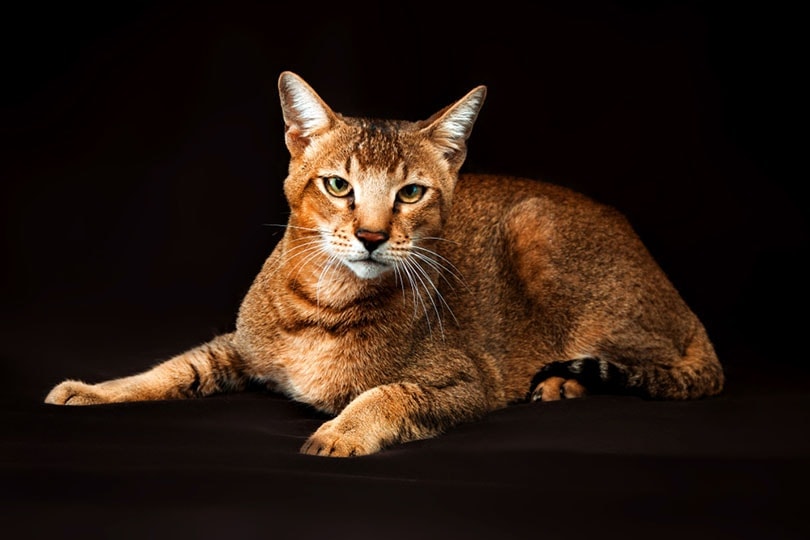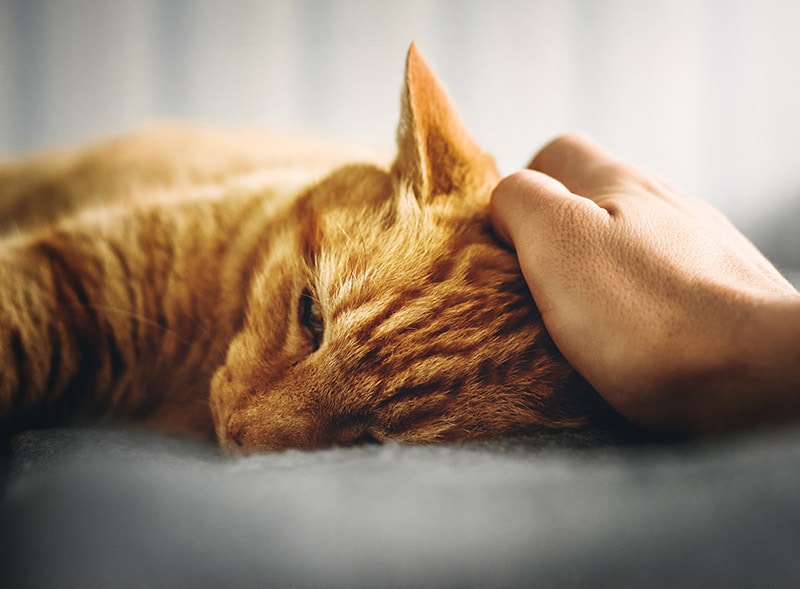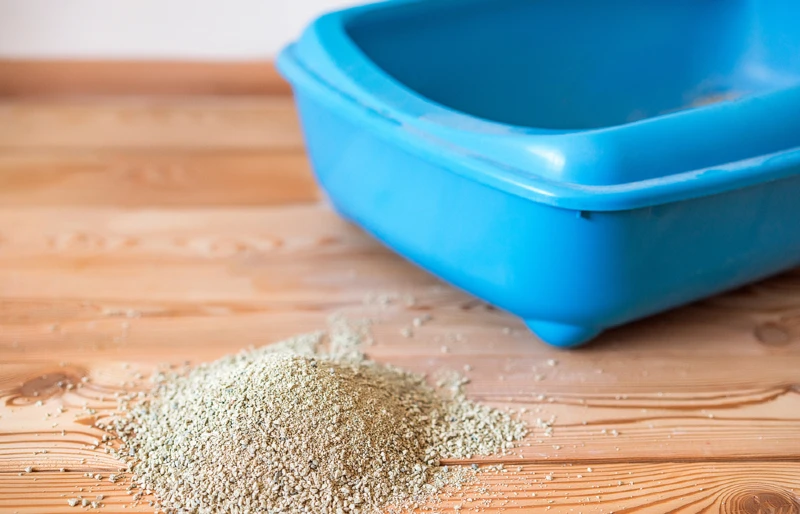Can Cats Drink Goat Milk? Vet-Reviewed Facts & FAQ

Updated on
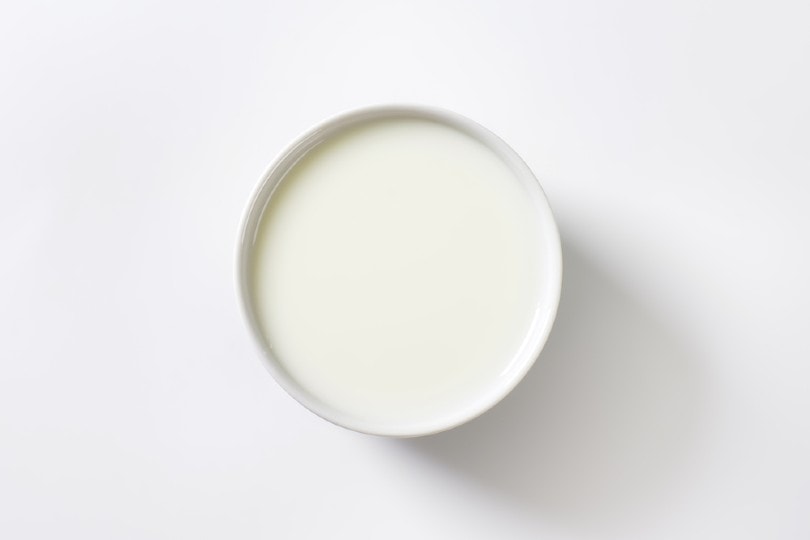
Owners are often discouraged from giving dairy products to cats because many of them are lactose intolerant and cow’s milk can cause upset stomachs, gas, and other gastrointestinal complaints. Goat’s milk, on the other hand, is considered a healthy suplement and is safe for cats to drink in small amounts. It offers several health benefits when consumed and many cats enjoy consuming it unadulterated, without any additives or extra ingredients. You can freeze it, mix it with other foods, or pop it in a bowl and let your cat drink a moderate amount.
Is Goat Milk Safe for Cats?
Cat owners are discouraged from feeding cow’s milk to cats because it contains lactose, and this is also true of goat’s milk. It does contain lactose. Cats struggle to digest lactose, and this intolerance can give your cat an upset stomach and may cause diarrhea and vomiting. Although there is less lactose in goat’s milk than in cow’s milk, it is still present and there is still enough that it could cause your cat to get ill.
With that said, some cats can handle a little lactose, and because goat’s milk does have less lactose than cow’s milk, it represents a decent alternative for those felines.
Goat’s milk is not considered toxic, which means that you shouldn’t panic if your cat pinches a little from your plate or glass, for example.
If your cat can handle a bit of lactose in their diet, the low-lactose levels of goat’s milk mean it can actually be digested. Read on for more information about the potential health benefits that goat milk might offer to cats.
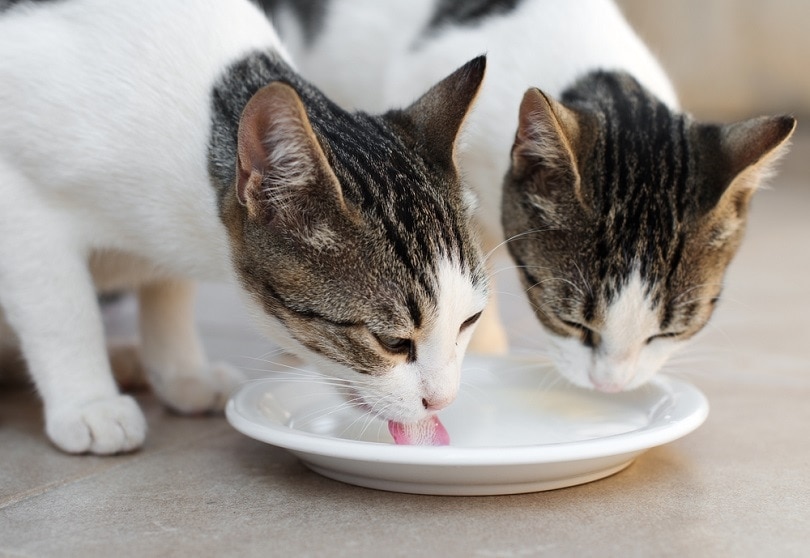
Reduces Intestinal Inflammation
One of the benefits of goat’s milk is that it contains oligosaccharides. These reduce gastrointestinal inflammation by interacting with the epithelial cells in the gut wall, helping to recover its integrity. A strong gut wall is more resistant to pathogens and less susceptible to inflammatory bowel diseases. Oligosaccharides are also prebiotics and help feed the bifidobacteria to help suppress intestinal allergic inflammations.
Keep in mind that each cat is different, and some might be sensitive to other components of goat’s milk, so you should remain observant and stop feeding it to your cat if it causes any GI upset.
Contains Probiotic Content
Goat’s milk is rich in probiotics. These good bacteria regulate and combat the bad bacteria that could make their way to your cat’s gastrointestinal tract. Besides reducing instances of diarrhea and vomiting, improved gut health is shown to have numerous health benefits. For example, it can reduce the severity of infections and even improve overall immune system health in your cat.

Less Allergenic
Goat’s milk is a novel protein for cats and dogs. This means that it is a protein that they are not usually exposed to, so they are less likely to be sensitive to the ingredients, and they will not show signs of sensitivity or allergy. Also, goat’s milk contains smaller fat globules than other forms of milk, such as cow’s milk. Therefore, it is more easily digested, taking less effort to consume than cow’s milk takes.
If your cat is prone to allergic reactions or sensitivity when consuming cow’s milk, you can try goat’s milk instead because it can reduce negative reactions.
Nutritionally Beneficial
Filled with vitamins, minerals, enzymes, and protein, goat’s milk is considered nutritionally well-rounded. What’s more, it is rich in minerals like magnesium, iron, and calcium, so it has a host of benefits to offer your cat.
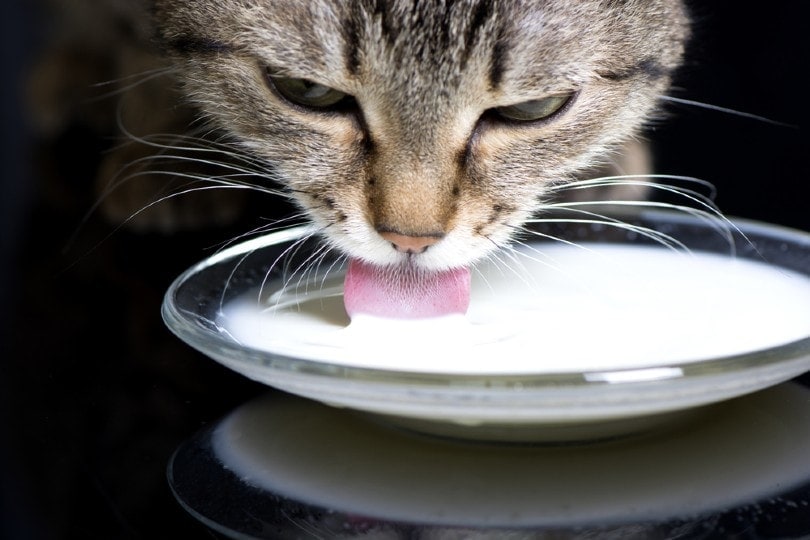
- You might also be interested in: 8 Best Kitten Milk Replacers – Reviews & Top Picks
Serving Goat’s Milk
If you are sure that your cat can tolerate lactose, you can try feeding a small amount of goat’s milk. The simplest way to do this is by pouring it in a bowl and offering it as a snack. Your cat will likely lap it up thanks to its creamy texture and appealing taste. Alternatively, you can mix it in with dry kibble or other food. This may serve to make otherwise bland food seem more appealing to your feline friend.
Goat’s milk will usually stay fresh in the refrigerator for up to 14 days, but it can be frozen or bought frozen, too. Keep the frozen milk in your freezer and defrost it as required. If your cat will take frozen food, you can even feed it as a frozen yogurt-style treat that will help keep your cat cool. This can also prevent them from gulping down too much of this treat too quickly.
Final Thoughts
Goat’s milk does contain lactose, but less than is found in cow’s milk. If your cat can tolerate a little lactose without showing adverse effects, consider giving a small amount of this milk as a treat, or mixing it with your cat’s regular food so that they can enjoy the various health benefits that this milk has to offer. Refrigerate or freeze the milk to ensure that it keeps without spoiling and so that you can continue to offer it.
Related Reads:
Featured Image Credit: Viktor1, Shutterstock



